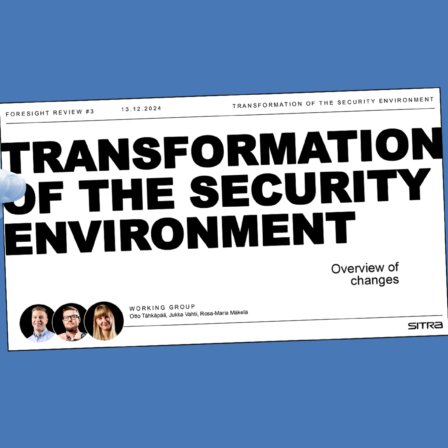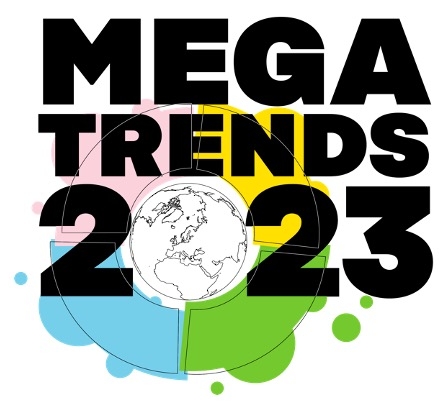Last summer, soon after the Brexit referendum, Great Britain found herself with a new Prime Minister, Theresa May. Ostensibly voted to power by her Conservative peers with the primary task of leading the country out of the European Union. Even before the Brexit negotiations had started, however, May set out to do something else.
In one of her first acts, the Prime Minister asked for an independent review into how employment practises need to change in order to keep pace with modern business models. The Prime Minister commissioned Matthew Taylor, the Chief Executive of the Royal Society of Arts, to lead the review. Taylor previously headed the No 10 policy unit under the then Labour Prime Minister Tony Blair.
In recent years, there have been considerable changes in global employment, as many traditional jobs rapidly become obsolete due to dramatic advances in technology. Meanwhile, freelancing and flexible work is becoming more common. The number of self-employed people, approximately 4.8 million in the UK, is at a record high and around one in five British workers now have so-called “non-standard work arrangements”.
In his forthcoming review, Taylor will look at ways to ensure that the regulatory framework surrounding employment is keeping pace with changes in the labour market and the economy. He will also examine how flexibility can be maintained, while also supporting job security and workplace rights.
The review will be published in the summer of 2017, but as Taylor emphasises, the analysis and debate has already begun. Recently, he even launched a country-wide evidence gathering tour to hear the discourse related to the UK’s labour market.
Matthew Taylor, why do you think the review on employment is so high on the Prime Minister’s list of priorities?
“There’s probably three reasons. The first is that she wanted to show a change of direction. This government is not going to be as unquestionably pro-free market as the previous government and there’s a stronger strand of kind of a paternalistic conservatism. I think it’s an indication of that.
Secondly, it’s a reflection of a change in the zeitgeist. It started around the time of the credit crunch in 2008 and after that. There’s a view that the government can’t go on subsidising low pay. It actually needs to raise pay so you get the conservative government raising the minimum wage and talking about the living wage. You also get the proliferation of new forms of employment and a growing awareness of the low-quality work. Ten years ago, I’m sure the public would have said that people shirking work is the big problem. Now, you probably find more people saying the big problem is that we’ve got too many terrible, poorly paid, insecure jobs.
Then, the third force is the technology, which is changing work in a whole number of ways, the growth of freelancing in particular. There’s a sense that employment regulations and tax regulations are out of step with the things that technology makes possible.”
How can the government respond to the changing world of work? What kind of tools do they have?
“I think that government has three main tools. It has the traditional regulation and tax policy. It’s clear that one of the reasons for the growth of self-employment is that we have a tax system which incentivises people to call themselves self-employed or incentivises companies to describe people as self-employed rather than employing them. Secondly, the government has the power of mobilising the stakeholders: employers, businesses, trade unions and other organisations. Thirdly, there is the power of public opinion and the energising of consumers and citizens in pursuit of a different model.
I’m determined that in my review it will not simply be about rules and regulations. It will be about saying that we seem to have reached a new point where people feel that the decency at work is an important issue. This is a good thing, but the government on its own can’t guarantee decency at work. This is going to require commitment from managers, workers, citizens and consumers. If the companies that clearly don’t treat the people decently carry on selling their products, and their bad reputation doesn’t seem to have any impact on their profitability, then we can’t complain about the outcome.”
Should the basic income model be considered?
“I’m a great supporter of basic income, but I don’t think it’s directly relevant to the review. I think basic income is a broader policy which relates to working incentives and some broad questions about what we think is going to happen to the labour market over the next 30 years. The arguments that I hope to highlight in my report will potentially contribute to the conversation about basic income.”
How can it be guaranteed that there will be enough work for ordinary people?
“I don’t think you can ever guarantee that. On the one hand, there are going to be major changes in the labour market and we need to have policies which recognise the changes. Conversely, I don’t think we should succumb to what I sometimes call “lump of labour fallacy” which is that just because jobs are lost in one area we would end up with structural unemployment.
There are two ways to evidence that. If you walk down a high street, yes, it’s true there will be fewer retail outlets because people now buy many things online, but on the other hand, there will be nail bars, health spas, coffee shops… On a personal level, some of those changes seem regrettable, I would rather have a fish monger than a nail bar. On the other hand some of those things are positive: I rather have a coffee shop than a betting shop.
The other important point to remember is that you could probably employ another million people in care work, looking after older people and children. It would improve the quality of peoples’ life dramatically. There’s no shortage of work that needs to be done, but we have to find out a way to pay for those things.
I’m more worried about how our economy works. One of the things I’ve come to think about a lot more is the resilience of our tax base. I thought it would be all about worker versus boss and exploitation. That is an important issue, but equally important is the question of tax. We have a tax system where the tax base is being eroded and where we are intensifying the wrong outcomes. We need to think more creatively about how to make a tax system that is fit for the 21st Century. Technology can create extraordinary new possibilities. For here, you’ve got the possibility, for example, of much more effective systems of collecting tax.”
Should education be more flexible as well?
The model we have is crazy: we cram all of our education into the first quarter, or even the first third of our lives.
“Personally I think so. The model we have is crazy: we cram all of our education into the first quarter of our lives. It’s really important that we learn throughout life and we ought to make sure that people in education experience work, and people in work get the opportunity to continue education.
One of the things we do need to think about is progression. Clearly one of the big problems for employees, agency workers and some contractors is that they are not getting an opportunity to develop in work. Something I want to think about is how could we create a stronger possibility to give people opportunities to develop and progress in their work. Everyone at work should feel there’s a chance of being able to get ahead.”
Employment is becoming more flexible and more people are now self-employed. Is there a risk of working conditions changing for the worse?
“It’s such a subjective thing. Is it better or worse to work in a call centre or a coal mine? In some ways a call centre is obviously better because it’s safer, there are no emergencies or people killed by mine collapses. That sounds a lot better. That said, it’s probably not as well paid as mining was paid. Likewise, is there the same kind of collective pride? Probably not.
The question is do we, as a society, believe that the dignity of work matters?
The question is do we, as a society, believe that the dignity of work matters? Should we care about not just people having work, but people having decent work? Work that they can enjoy, work that has got wide opportunities. There is a growing feeling in society that people should have decency at work. My review can add to the momentum in that sense. We all have a responsibility to ensure people have decency at work.”
How do you see the role of trade unions in the future?
“An important area for us to look at is how we encourage a better collective voice for workers and for contractors. Even if you are classified as self-employed, you should have a voice, you should, as a group, be able to talk to your managers, to make your case. You should have rights.
The problem is that even in traditional employment in the private sector not many people exercise those rights. How could we encourage a collective voice? I think it improves productivity to let workers talk about their experiences, to express their views, to be engaged. Part of that responsibility does lie with trade unions themselves. The best trade unions have an attitude in which they want to engage the employees. It’s not about conflict at work, it’s about partnership at work. Some of our trade unions create the impression that it’s all about industrial conflict, it’s all about left-wing politics. That alienates people. There’s a challenge to trade unions to demonstrate that they are there for ordinary people. It’s in everyone’s interest that a company is well run.”
Do you think there will be new kinds of trade unions for self-employed people?
“There’s a strong opportunity for unions to provide support, services and guidance for freelance and agency workers. However, if they are going to do that they need to modernise trade unions. It needs to feel more suited to modern workers and their lives and expectations. There is an emergence of unions or associations which are for freelance workers in this country and of course in America it is very big. There’s a lot that could be done in relation to the representation of a collective voice.”
We have already seen political turbulence caused by changes in employment. One could even argue that Brexit happened partly due to that.
“Brexit has got more to do with the overall nature of the economy and it was due to geography in the sense that Britain is a very uneven country. London does much better than the rest of the country. It’s also partly to do with political disenchantment, living standards and migration. I’m sure that the quality of work and how people get treated at work is part of it, but I wouldn’t exaggerate that as a factor here.”
If I gather all this together: changing employment is not going to be all doom and gloom. What are the benefits for the ordinary people?
If you can do the work, make the contribution and be your own boss, for many people that’s a liberation.
“As long as we get the right framework and people are not being exploited, I think flexible work is a great thing. I also think it’s a great thing if it’s increasingly possible for people to work for themselves. I’m in favour of self-employment, I’m in favour of flexibility at work as long as we make sure it’s not exploitative and that it’s not having detrimental effects on the capacity to raise taxes to pay for services. If you can do the work, make the contribution and be your own boss, for many people that’s a liberation.”
























Other articles
They’re on the house.